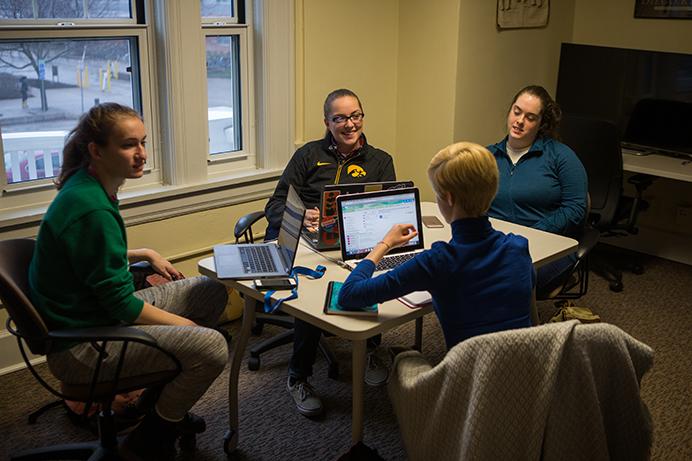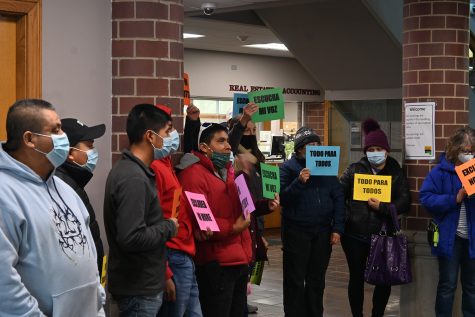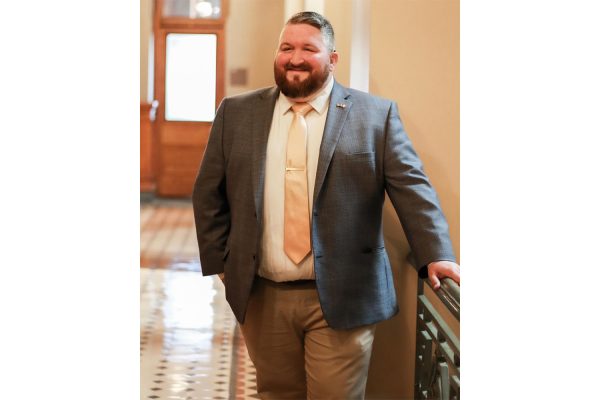GOPers take aim at Planned Parenthood
Student Advocates for Planned Parenthood (SAPP) met at the WRAC on April 5, 2017 to discuss plans of actions for the next academic year. SAPP is a University of Iowa Next Generation chapter that focuses on intersectional reproductive rights.(The Daily Iowan/Osama Khalid)
April 10, 2017
Uncertainty is hanging over the heartland as Iowans ponder the passing of state and federal legislation affecting reproductive rights.
Vice President Mike Pence cast a tiebreaking vote late last month, advancing a bill sponsored by Sen. Joni Ernst, R-Iowa, to be signed by President Donald Trump barring states from allowing federal Title X funds to go toward organizations such as Planned Parenthood that provide abortions.
The measure would repeal a regulation former President Barack Obama signed shortly before leaving office preventing states from denying funding to clinics that provide abortions as part of their services.While federal dollars are not used to fund abortions at the clinics, some anti-choice critics believe such organizations should not receive federal funds because they provide abortions.
“We know that one, Planned Parenthood, is not the foremost provider of women’s health care in the United States, but it is the No.1 provider of abortions in the United States,” Ernst said at a March town-hall meeting in Cedar Rapids.
Only 3 percent of the services Planned Parenthood provides are abortions, according to 2013-14 data from Planned Parenthood. Other services include contraception, STI/STD testing and treatment, and cancer screening.
Sen. Joe Bolkcom, D-Iowa City, said Planned Parenthood has done more than any organization in the country to reduce unplanned pregnancies, especially among teenagers, and abortions. He thinks this is an issue that politicians should not be meddling in.
“Cutting off funding from Planned Parenthood is going to result in more abortions and more unplanned pregnancies, and I don’t think anybody wants more unplanned pregnancies or more abortions,” he said.
Daniel Larkin, the president of Students for Life at the University of Iowa, contends that Planned Parenthood downsizes its numbers regarding abortion services. Other organizations provide cancer screenings and contraception, he said, so he supports Ernst’s push for the federal legislation.
“Planned Parenthood has just become so politicized,” he said. “It’s just pretty much become a front for the Democratic Party. It’s a huge moneymaker for them.”
Adelaide Zwick, the president of Student Advocates for Planned Parenthood at the UI, emphasized how tax dollars are not used to fund abortions. Despite the stigma surrounding it, she said, it is a basic health procedure. Additionally, she said, millions of Americans — including males — use Planned Parenthood’s services.
“It’s not just a women’s issue; it’s a people of the United States issue,” she said. “Many of the people receive services from Planned Parenthood are people who could not afford to receive these services from another clinic, so if we just take that away, where are these people going to go?”
In Iowa, the House voted to prohibit abortions after the 20th week of gestation. The bill, which is headed back to the Senate for approval of the amendments before going to Gov. Terry Branstad’s desk, also requires women to wait for a period of three days before obtaining an abortion.
Larkin said he believes abortion is wrong, no matter the situation, so he thinks the legislation is a step in the right direction.
“The ultimate goal is to have [abortion] abolished completely in the United States,” he said. “We’re working toward that, feeling pretty good about having the majority of state legislators, pro-life legislators, having the House, and the Senate, and the White House.”
Bolkcom, discontented with the bill, said that after 20 weeks, most abortions are provided to women whose health is at risk because of the pregnancy or something has gone wrong with the pregnancy.
“When women have to make a decision after 20 weeks, the decisions are always hard and difficult,” he said. “Women in that position had generally hoped that their pregnancy would turn out resulting in a healthy baby, and when a fetal anomaly is discovered, it’s a tragedy and very devastating for that family that had hoped for a healthy baby.”















